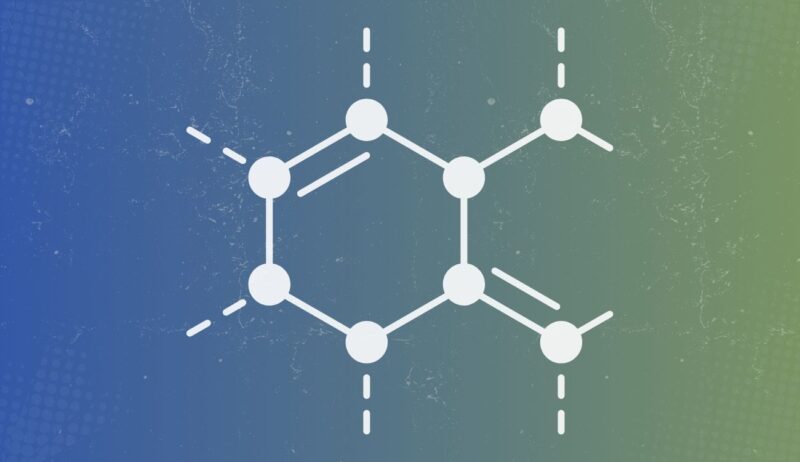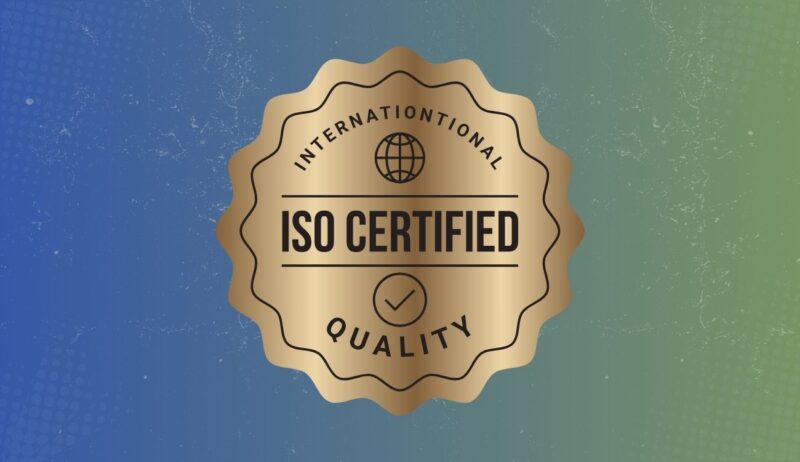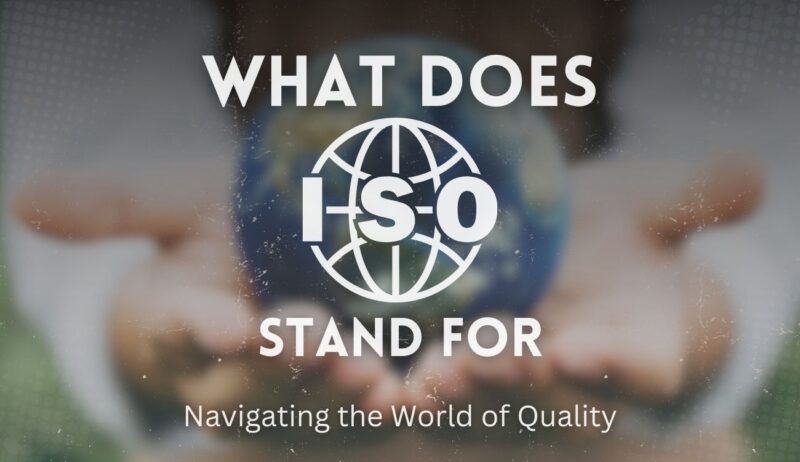“ISO” stands for the International Organization for Standardization. It is an independent, non-governmental international organization that develops and publishes international standards.
These standards ensure that products, services, and systems are safe, reliable, and of good quality. They cover various industries, including technology, food safety, agriculture, and healthcare.
History
The inception of ISO can be traced back to the post-war era, where the necessity for international standards became evident to facilitate global trade and ensure the quality and safety of products and services.
Established in 1947 by delegates from 25 countries, ISO aimed to create a body that would “facilitate the international coordination and unification of industrial standards.”
Since then, the area has evolved, adapting to the changing needs of the global landscape, ensuring that standards remain relevant, efficient, and conducive to innovation.
Over the decades, it has played a pivotal role in standardizing various aspects of technology, manufacturing, and services, ensuring that industries evolve with a focus on quality and sustainability.
The organization has been instrumental in developing standards that have revolutionized industries, such as those for quality management and environmental management.
These standards have not only facilitated international trade but have also ensured that businesses operate with a focus on quality, efficiency, and sustainability.
The development through the years reflects a commitment to ensuring that international standards facilitate global trade, safeguard consumers, and propel industries towards innovation and sustainability.
The organization, while maintaining its core values, has continually adapted to the emerging needs and challenges of the global landscape, ensuring that standards remain relevant, efficient, and conducive to societal and environmental well-being.
Structure

ISO operates with a structure that ensures the comprehensive and expert-driven development of international standards. The organization is composed of members from 165 countries, each represented by their national standard body, which could be part of the government or a private-sector organization.
These member bodies are categorized into full members, correspondent members, and subscriber members, each having different levels of engagement and voting rights.
The development of standards within ISO is a meticulous process that involves experts from various industries and sectors.
When a need for a standard is identified, experts form a technical committee, which is responsible for navigating through the development of the standard, ensuring that it is relevant, efficient, and adheres to the highest quality.
This process, which is consensus-driven, ensures that the developed standards are well-rounded, taking into consideration the various aspects and challenges of the industry.
While ensuring the development of quality and efficient standards, it also focuses on ensuring that the standards are accessible and implementable across various sectors and regions.
Importance
These standards have become synonymous with quality and reliability in the global market, ensuring that products and services across various industries adhere to stringent criteria, thereby safeguarding consumer interests and facilitating international trade.
The standards developed by ISO permeate numerous sectors, ensuring that whether it is a product being manufactured or a service being delivered, it adheres to predefined quality norms, ensuring safety, reliability, and efficiency.
Moreover, standards have been pivotal in ensuring that innovations and technological advancements are streamlined and standardized, ensuring that they are safe and reliable.
They have played a crucial role in breaking down trade barriers and ensuring that products and services from different countries adhere to a common set of standards, thereby ensuring quality and reliability.
This not only facilitates international trade but also ensures that consumers have access to products and services that are safe, reliable, and of high quality.
Furthermore, they are instrumental in ensuring that innovations and technological advancements are accessible and safe for consumers, thereby propelling industries towards sustainable development.
Standards such as the ISO 14000 series, which focus on environmental management, ensure that organizations not only adhere to legal and regulatory requirements but also focus on minimizing their environmental impact, thereby contributing towards sustainable development.
ISO Certification

The certification is a seal of approval from a third party that a company runs to one of the internationally recognized ISO management systems. The certification can be used to tender for business as a proof of a company’s credibility but also to install confidence in the potential client that you will keep your promises.
The process of obtaining the certification involves a detailed audit of the organization’s processes and systems, ensuring that they adhere to the predefined standards, thereby ensuring quality, safety, and efficiency.
Different standards cater to various aspects of businesses, such as quality management, environmental management, and information security management, among others.
- ISO 9001 focuses on quality management, ensuring that businesses have a robust quality management system that ensures the consistent delivery of products and services that meet customer and regulatory requirements.
- ISO 14001 focuses on environmental management, ensuring that businesses minimize their environmental impact and adhere to statutory and regulatory requirements.
Obtaining ISO certification, while ensuring that businesses adhere to predefined standards, also provides them with a competitive edge, ensuring that they stand out in the global market.
Implementation in Various Sectors

The application of ISO standards spans across various sectors, ensuring that whether it is a product being manufactured or a service being delivered, it adheres to a common set of standards, thereby ensuring quality and reliability.
- In the manufacturing sector, ISO standards ensure that products are manufactured adhering to predefined quality norms, ensuring that they are safe, reliable, and efficient. This not only ensures the quality of the products but also safeguards the interests of consumers, ensuring that they have access to reliable products.
- In the service industry, ISO standards ensure that services are delivered adhering to predefined quality norms, ensuring consistency and reliability. This not only ensures that consumers have access to reliable and consistent services but also ensures that the services are delivered efficiently, thereby ensuring customer satisfaction.
- Moreover, in sectors like healthcare and medical devices, ISO standards ensure that products and services are not only safe and reliable but also adhere to regulatory requirements, thereby safeguarding public health and safety.
- When it comes to IT and software development, ISO standards ensure that products and services are developed and delivered adhering to predefined quality and security norms.
Criticism and Challenges

While ISO standards have been widely accepted and implemented across various industries and countries, they have not been without criticism and challenges. One of the primary criticisms is the complexity and bureaucratic nature of the certification process.
Small and medium-sized enterprises (SMEs), in particular, often find it challenging to navigate through the intricate and resource-intensive process of obtaining ISO certification, which can be a barrier to ensuring widespread standardization across all scales of businesses.
Moreover, the implementation of ISO standards across various sectors and regions has been met with challenges pertaining to adaptability and relevance.
Different industries and regions, with their unique challenges and operational nuances, often find it challenging to implement generic standards.
The need for standards that are adaptable and take into consideration the unique challenges and requirements of different sectors and regions has been a point of discussion and critique among industry experts and stakeholders.
Despite the challenges and criticisms, ISO has been proactive in evolving and adapting to the changing needs of the global landscape.
What to Expect in the Future?
Do you want to be part of ISO’s future? Have your say on our future strategy. http://t.co/2ozLAOswjy
— ISO (@isostandards) June 27, 2014
One of the key focus areas for ISO in the future is sustainability and environmental conservation. With the increasing global focus on minimizing environmental impact and ensuring sustainable development, ISO standards will play a crucial role in ensuring that organizations and industries operate with a focus on environmental conservation.
Standards that focus on minimizing environmental impact, ensuring energy efficiency, and promoting sustainable practices will be pivotal in shaping the future trajectory of various industries.
Moreover, with the rapid advancements in technology and the emergence of new sectors such as artificial intelligence, cybersecurity, and data management, ISO will play a crucial role in ensuring that these advancements are standardized, safe, and reliable.
Frequently Asked Questions (FAQs)

How does ISO ensure the impartiality and accuracy of its certification process?
ISO ensures impartiality and accuracy in its certification process by involving independent third-party certification bodies to conduct audits and assessments. These certification bodies must adhere to ISO/IEC 17021, a standard that sets out criteria for them to ensure impartiality, competence, and consistency. Moreover, ISO itself does not issue certificates; this is done by external certification bodies, ensuring an unbiased process.
How does ISO address the specific needs and challenges of developing countries?
ISO has a dedicated committee, DEVCO (Committee on developing country matters), which focuses on the needs and challenges of developing countries. DEVCO works towards ensuring that developing countries have adequate access to standards and are also represented in the standard development process. It provides training, tools, and technical assistance to help developing countries adopt and implement international standards.
How does ISO ensure that its standards remain relevant and up-to-date with technological advancements?
ISO has a systematic review process in place to ensure that its standards remain relevant and up-to-date. Every ISO standard is reviewed every five years to determine whether it should be revised, withdrawn, or maintained. This ensures that ISO standards are always in alignment with current technologies, market demands, and regulatory changes.
What role does ISO play in supporting innovation in emerging industries like IoT and AI?

ISO establishes standards that support innovation in emerging industries by providing a framework that ensures safety, reliability, and interoperability while also considering ethical and societal impacts. For instance, ISO/IEC JTC 1 is a joint technical committee that develops standards for emerging technologies like IoT and AI, ensuring that innovations are safe, ethical, and can be globally implemented and adopted.
How does ISO collaborate with other international standardization organizations?
ISO collaborates with various international standardization organizations through liaison relationships, joint initiatives, and collaborative projects. For instance, ISO and IEC (International Electrotechnical Commission) have joint technical committees to develop standards in areas like information technology and electrotechnology. ISO also collaborates with ITU (International Telecommunication Union) and various other organizations to ensure global applicability and coherence of standards.
Last Words
The standards developed and published by ISO not only ensure the quality and safety of products and services but also ensure that industries operate with a focus on sustainability, innovation, and global collaboration. Moreover, ISO, with its adaptive and forward-looking approach, is poised to play a crucial role in shaping the future trajectory of industries, ensuring that they evolve with a focus on quality, safety, and sustainability.
Our team, Amazon as Images, is covering a lot of interesting topics from different areas. Therefore, keep following to stay in touch with interesting and informative news.
